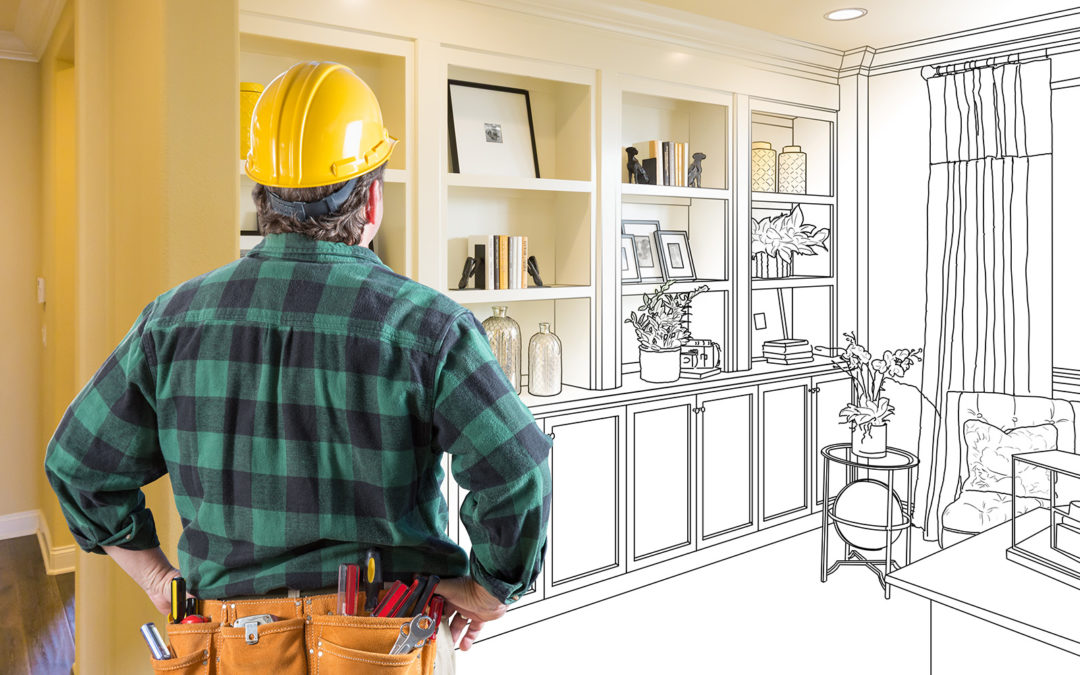To find the right home remodeling contractor, start by identifying your project goals, checking online reviews, verifying licenses and insurance, and comparing written estimates from multiple contractors. Whether you’re planning a home renovation, kitchen upgrade, or full home remodel, the right contractor should offer experience, quality workmanship, and transparent communication to ensure a successful outcome.
Step 1: Define Your Home Remodeling Goals
Before you start searching for contractors, determine what you want to achieve with your remodel. Are you updating outdated rooms? Expanding your living space? Improving energy efficiency?
Knowing the scope and purpose of your project will help you communicate effectively with potential contractors and ensure you’re hiring someone with the right expertise.
Make a list that includes:
-
Desired changes (e.g., new cabinets, layout changes, flooring)
-
Must-have features or materials
-
Budget range
-
Ideal timeline
The clearer your vision, the easier it will be for contractors to provide accurate quotes and design suggestions.
Step 2: Ask for Recommendations and Do Online Research
Word-of-mouth referrals are still one of the best ways to find trustworthy remodeling services. Ask friends, family, neighbors, or coworkers who have recently completed a remodel about their experience. Would they hire the same contractor again?
In addition, explore online directories like Houzz, Angie’s List, Yelp, and Google Reviews. These platforms offer client testimonials, project photos, and ratings that can give you a sense of a contractor’s reputation.
When researching online, be sure to look for:
-
High average ratings
-
Consistent positive feedback about timeliness, cleanliness, and communication
-
A professional website with a portfolio of past work
Step 3: Verify Credentials and Insurance of Remodeling Contractors
Always choose a licensed and insured contractor. Licensing ensures the contractor meets local regulations and standards, while insurance protects you from liability in case of accidents or property damage.
When interviewing contractors, ask for:
-
State license number
-
Proof of general liability and workers’ compensation insurance
-
Any industry certifications (e.g., NARI, NAHB)
Don’t hesitate to verify this information with the appropriate licensing boards or insurance providers.
Step 4: Review Portfolios and Completed Projects
An experienced contractor should be able to show you a portfolio of previous home renovation projects. Reviewing photos of similar remodels helps you evaluate their style, craftsmanship, and attention to detail.
Some questions to consider:
-
Do they have experience with projects like yours?
-
Is their design aesthetic aligned with your vision?
-
Have they successfully completed full-home renovations or just smaller jobs?
If possible, ask for references or even tour completed projects. Speaking with past clients is one of the most reliable ways to gauge a contractor’s reliability and work ethic.
Step 5: Interview Multiple Contractors
It’s wise to meet with at least three nearby contractors before making a decision. During the interview, pay attention to their professionalism, communication style, and responsiveness.
Questions to ask include:
-
How long have you been in business?
-
What’s your estimated timeline for this project?
-
Will you use subcontractors, or is your team full-service?
-
How do you handle permits and inspections?
-
How will unexpected costs or changes be managed?
The right home remodel contractor will offer clear answers and make you feel comfortable and confident throughout the process.
Step 6: Get Detailed Written Estimates
Always request written estimates that include a breakdown of:
-
Labor and materials
-
Project timeline and start date
-
Payment schedule
-
Warranties or guarantees
Avoid vague quotes that leave room for surprise costs. Be wary of bids that are significantly lower than others — this can be a red flag for cutting corners or hidden fees.
A reputable full-service remodeler will take the time to walk you through the estimate, explain the materials chosen, and provide insight into potential challenges.
Step 7: Evaluate Contracts Carefully
Never sign a contract without reviewing all the details. The contract should clearly state:
-
Scope of work
-
Project cost and payment terms
-
Timeline with start and completion dates
-
Responsibilities (including debris removal and daily cleanup)
-
Change order procedures
-
Termination clauses
Consider consulting a lawyer for large or complex projects to ensure your rights are protected.
Step 8: Trust Your Instincts
Beyond licenses and portfolios, it’s important to feel confident in your contractor’s integrity. A good contractor will treat your home with respect, keep you informed, and stand behind their work.
If something feels off — poor communication, unclear answers, or pressure to commit — it may be best to keep looking.
Final Thoughts
Finding the right contractor isn’t just about price — it’s about value, trust, and long-term satisfaction. A qualified home remodeling contractor in Baltimore should provide not just skilled craftsmanship, but also peace of mind.
Whether you’re planning a minor home improvement or a full-scale home renovation, taking the time to research and vet your contractor ensures the success of your project and the future comfort of your home.
Start by gathering recommendations, vetting credentials, and conducting thorough interviews. Ask the right questions, compare estimates, and always choose quality workmanship over fast fixes.
By following these steps, you’ll be well on your way to transforming your house into the home of your dreams — with the right professional by your side.

